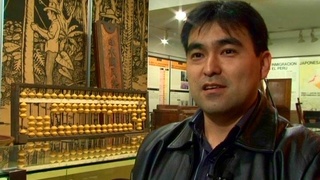Interviews
Re-examining Identity
Now it's really ironic, I find it ironic. Here I am, product of the '60s. If nothing else, it was an era that brought everything into question. Everything was up for grabs. Every political, social, sexual truth that you thought existed, we'll check it out and see if it holds water.
Oddly enough, I never used that critical factor in examining my own history. Like, what did it mean that I had to grow up as an enemy alien? What did it mean that my people were locked up? Where was that at? Have I studied that? Have I analyzed that? Have I brought it toward public consciousness? No. No. I didn't. And part of that was the alienation was so deep, from my Japanese-ness, that I rejected my own community. And there was this kind of odd tension, because I rejected on one hand, but on the other hand it was a source, especially of my childhood, of community, of family and home.
Because slowly, we started to build our infrastructure back together. I can remember, like there was these wonderful picnics that we used to have as a community and we used to go out to this Boy Scout camp that we somehow managed to rent. It was isolated on the shores of Lake Erie and I loved it. I loved picnics and I'd go up there and fish all day and eat this wonderful bento food. But one year, for some reason, we couldn't rent it any more. So we had to go to a public park in Rondo. In Lake Erie. So we're out there and then we're out there, but we're not isolated any more. We got white folks all around us, doing their picnic thing. In the mean time, I'm really self conscious about eating onigiri and teriyaki and all this stuff. And ohashi. It wasn't comfortable any more.
Date: February 9, 2011
Location: California, US
Interviewer: Patricia Wakida, John Esaki
Contributed by: Watase Media Arts Center, Japanese American National Museum










